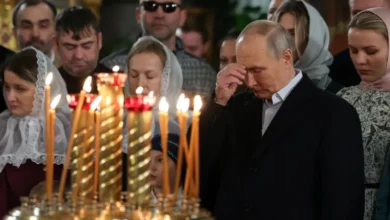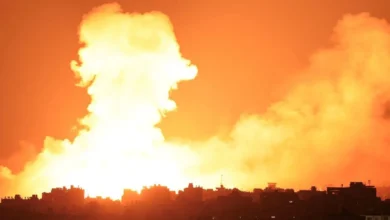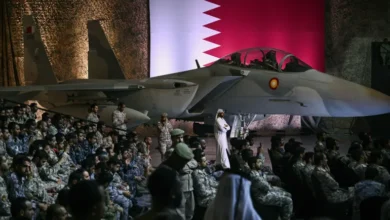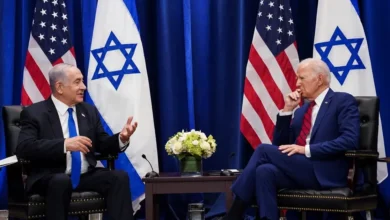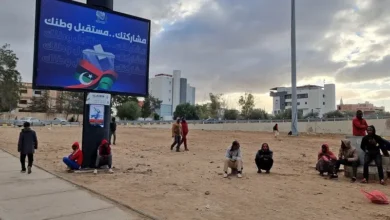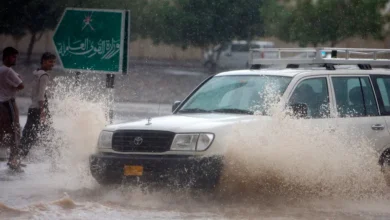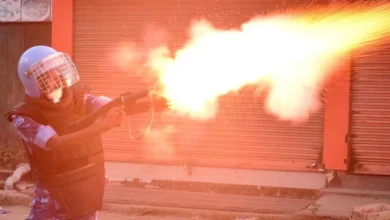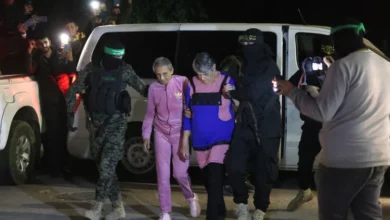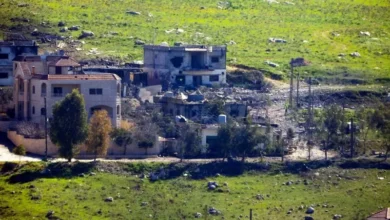‘One minute to say goodbye’ to a father, son, husband: Hussein Abu Jamei
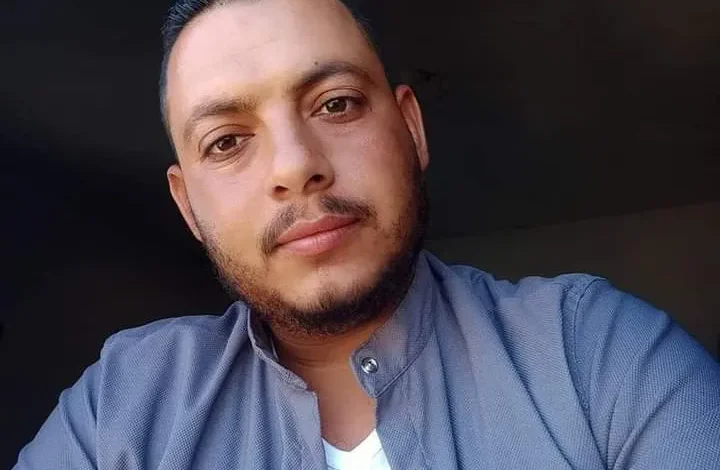
It was 1am when the group of first responders in Khan Younis received the call – there had been an Israeli air raid nearby.
Along with his colleagues, Sayyed Mohammed Abu Jamei rushed to the site and started digging through the rubble to find any survivors. In the middle of scrabbling frantically through the debris, Sayyed found himself looking at the body of his own brother, Hussein.
Hussein’s mother, his wife Hadeel Abu Abed and their children all rushed to the hospital. They arrived only a few moments before he was buried, managing only a rushed final farewell inside a dangerously overcrowded morgue.
“They had one minute to say goodbye,” said Sayyed, 46. “The children were able to kiss him. But his wife and my mother only looked at him for the last time.
“My mother wished she could kiss him, but she couldn’t because of the crowd.”
Talking to Al Jazeera in the hospital’s waiting area, Sayyed’s eyes drifted as he tried to sum up who his brother was: “He was decent, he was level-headed, he was polite,” he repeated, over and over.
Hussein was only 32 when he died – killed by an Israeli missile that hit a residential neighbourhood in southern Khan Younis where he was sheltering with friends and extended family members.
His dream was to pay off some loans he had taken to build a small apartment above his parent’s house and to buy a car. Eventually, he wanted to save up enough to buy a piece of land to build a bigger house for his wife, three children, and unborn baby.He often told his brother how much wanted his children to have a place where they could create beautiful memories. To achieve this dream, Hussein worked long hours as a driver, doing odd jobs from dusk to dawn in the besieged Gaza Strip.
“My brother was one of those people who you would like from the moment you met,” Sayyed said. “He had an ease and calm about him that would draw people to him.”
Twenty days before he was killed, Hussein had taken his pregnant wife and three children, Abdallah, 10, Ahmed, 7, and Hoda, three, to stay at his in-laws’ home in Bani Souhaila, further south in the strip.
He had also left the family’s apartment in the east of Khan Younis and moved to the south of the city.
A family torn apart
When they fell in love, Hadeel and Hussein had already been neighbours for a while.
They had a traditional Palestinian wedding, complete with a zaffeh (wedding procession) and have celebrated their wedding anniversary every year.
“Hadeel was everything to him,” Sayyed said. “He cherished and respected her, and tried to provide her with everything she needed.
“The day each of his children was born, Hussein was overjoyed and distributed sweets in the neighbourhood to share his joy,” Sayyed added.
“Hussein had a special bond with his kids. He was a child at heart and doted on his children despite the hardships of his life.
“He made sure to take time out of his busy day to play with them and to do the things they liked to do. He even used to play with them in the street.”
Hussein missed his children terribly during the period they were separated, Sayyed said. He tried to go see them as often as he could – the last time was on the day before he was killed. Despite the danger, he checked also on his parents in the al-Zana district in eastern Khan Younis, five kilometres (3.1 miles) away, every two to three days.
“Hussein had a very warm and loving relationship with my parents and siblings. He was very attached to his kids and wife. God help them. He would make sure to help the children with their homework, he wanted them to excel. He would call them ‘Dr Abdallah’, ‘Dr Hoda’,” Sayyed said, his voice trembling.
Asked about how Hussein’s wife was doing, he said despairingly: “We have 10,000 martyrs in Gaza. She reacted like any of the people who have lost loved ones.”
Sombre and exhausted, Sayyed thought about what his brother would have wanted if he had lived.
“He wasn’t a man of grand ambitions. He wanted what an average young man his age wanted: to be content, have a decent life, and live in peace.”
